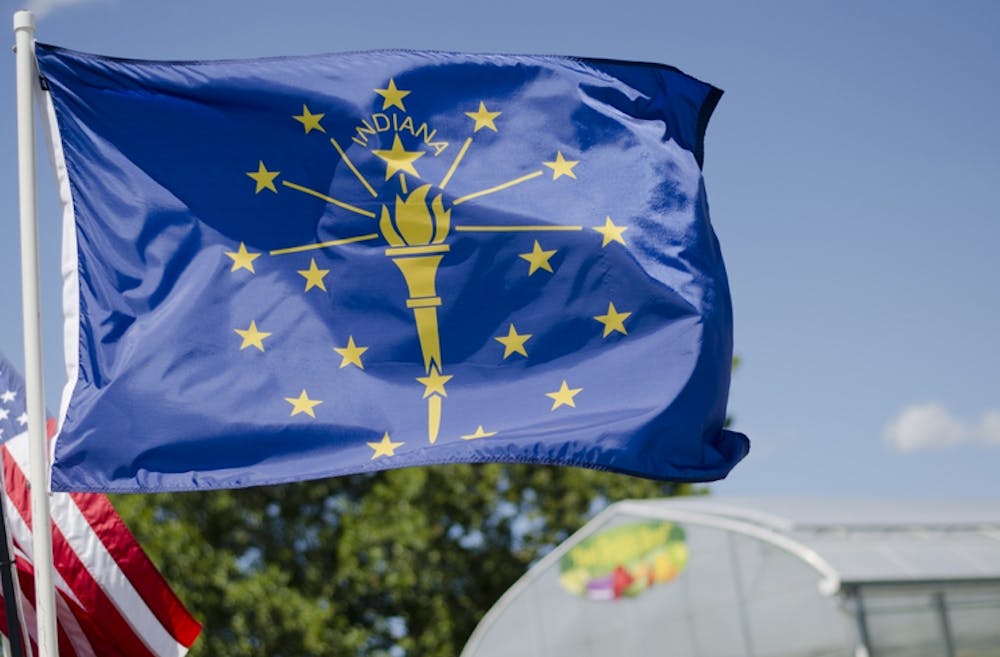Voting day info:
- Presidential and state primary: May 3
- Polls will be open from 6 a.m. to 6 p.m. local time.
It's a rare role for Indiana to play during a presidential election, but this year, Hoosier voters could have an important voice.
Indiana hosts the only May 3 primary in the nation, and if its election is similar to other states, the lead up to the primary may include higher voter interest and heated campaign rallies to define this year’s intense race for the White House.
By this time in past elections, the races have been mostly completed before Hoosiers even cast their votes because presidential contenders have earned enough delegates to ensure their party’s nomination. This means the Indiana primary is then, usually, just a political formality to complete the nomination process.
But this year, the delegates for each party’s convention to be selected from Indiana could be enough to tip the balance for front runners Hillary Clinton and Donald Trump, Ball State political science professor Sean Hildebrand said.
"Voting is always important, but both the Democrats and Republicans have a competitive primary for president this year," Hildebrand said.
Indiana voters could also put the "magic number" of delegates needed to gain their party’s nomination out of reach should their competition win the state, or at least a significant number of delegates.
"I’m sure we will see [Bernie] Sanders, Clinton, Trump, [John] Kasich and [Ted] Cruz each visit some part of the state in the next couple weeks before the primary," Hildebrand said.
And he's right — presidential candidates are already dropping campaign offices across the state, and Republican presidential candidates Trump and Cruz both visited Indianapolis this week. Kasich is planning a visit to Indianapolis April 26, according to a campaign consultant’s Twitter.
Students at Ball State are gearing up for the election as well. Alec Edick, vice president of the University Democrats, said this election cycle is different on both sides of the aisle.
"For Democrats, we are looking at an election that will truly decide the direction of our party," Edick said. "Voting in this election cycle, especially in the primary, is key because it will essentially decide which paths both parties take."
University Democrats Communications Director Mary Pat Stemnock echoed Edick's emphasis on the importance of voting in this year's primary election, and now her goal is to educate and encourage her peers to vote.
"I've taken to social media to explain the process, presented in front of my sorority sisters and encouraged my friends to be vocal about politics," Stemnock said.
As for the university, Stemnock suggested professors be understanding when it comes to class absences on primary day. Polls are open for a limited amount of time, and for busy students, accommodations need to be made so individuals can exercise their right to vote, she said.
"Despite what some may believe, each individual vote really does count," Stemnock said. "Our democracy only thrives if everyone contributes, and this year, delegates can also change the game in a very close contest on both sides."
In Indiana, there are 92 Democratic delegates, and 57 delegates are up for grabs on the Republican side.
On the Democratic side, 83 delegates are given out to the candidates on a prorated basis on the percentage of votes they receive during the primary election. These pledged delegates must vote for the candidate they are assigned to. Indiana also will have nine superdelegates who can vote for any candidate they choose.
On the Republican side, 27 at-large delegates will be pledged to the candidate who wins the overall statewide vote, and 27 pledged district delegates — divided among Indiana’s nine congressional districts — will be committed to whomever wins their own district. Additionally, three delegates are chosen from the party hierarchy.
Indiana delegates on both sides of the aisle are bound by the results of the primary election only in the first round of voting at their party’s convention.
If Trump wins Indiana, those 30 delegates have to vote for Trump on the first ballot at the convention. The remaining 27 delegates are awarded by congressional district — three delegates from each of Indiana's nine districts are required to vote for the winner of their respective congressional district.
But if no candidate earns a majority (1,237) of delegates on the first ballot, the delegates chosen to represent Indiana will be free to vote for whomever they prefer.
BSU Republicans representative Kristin Baker said a poor performance from Trump could mean he has very little chance of making it to the 1,237 delegates he needs to clinch the nomination.
But if Trump pulls through, it could be just the push of momentum he needs to win the nomination in the first ballot of the convention before delegates become unbound.
"It is very difficult to predict the outcome of the Indiana primary," Baker said. "There has yet to be a poll ran for the state of Indiana. With Indiana’s high evangelical, blue collar, rural population, it is difficult to predict if Cruz or Trump will win. Whoever wins the popular vote will secure the large majority of delegates."





